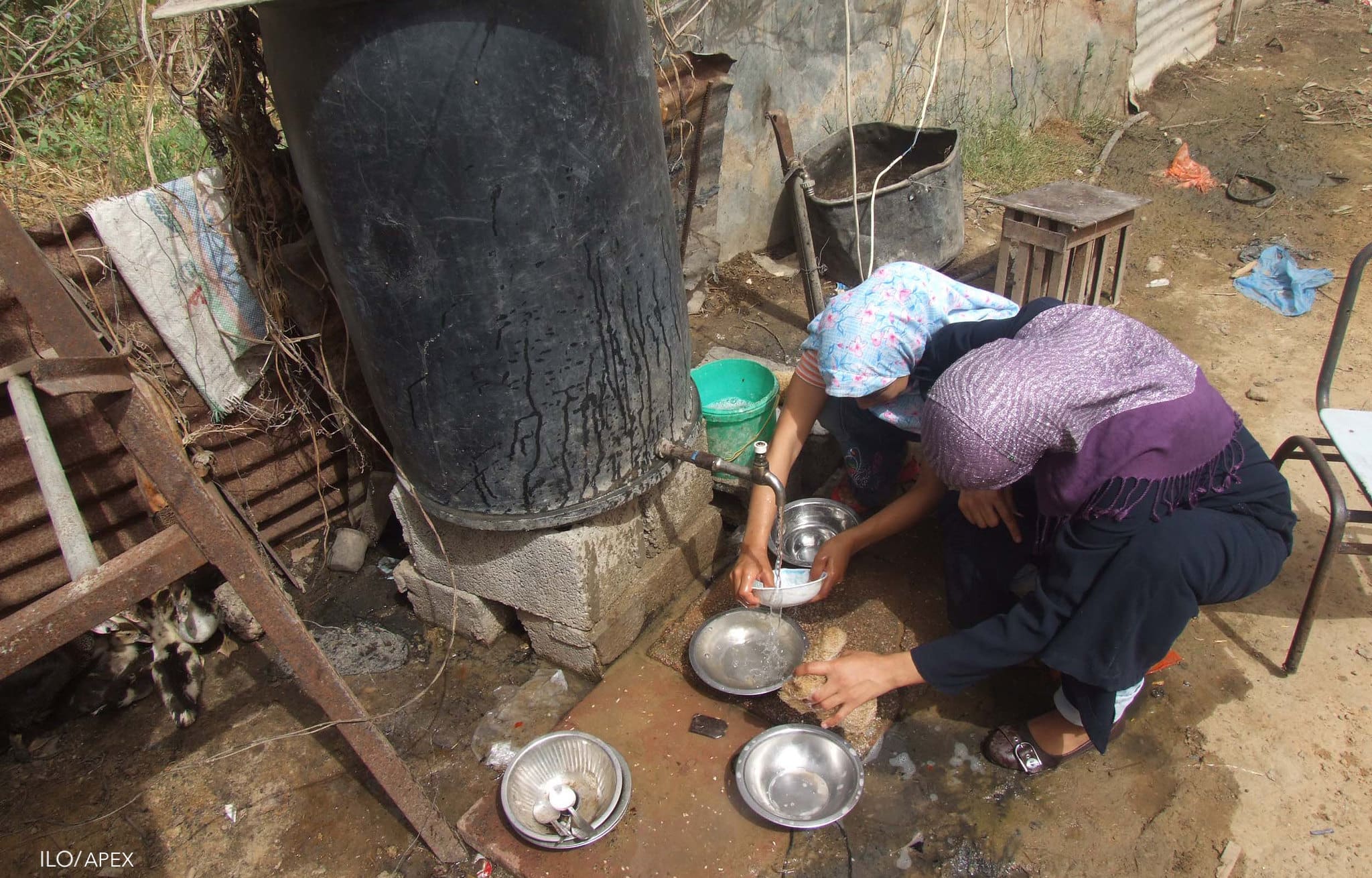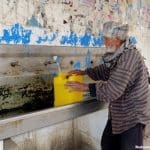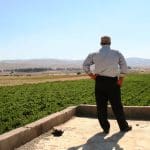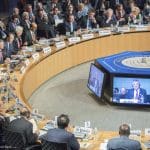
Executive Summary
Palestine is undergoing a man-made water crisis. Yet government officials, the international community, donor agencies, and even academic literature portray Palestine’s lack of water resources as a result of the region’s climatic conditions. What these narratives fail to address is that Palestine’s water scarcity is a social and political construct that obscures how Israel entrenches its hegemony over water resources, with donor support, resulting in severe water inequality for Palestinians.
Israel is currently using 85% of the shared water resources of the West Bank, and has forced the Occupied Palestinian Territory (OPT) into dependency on Israel as the main supplier of water. Despite this reality, Israel’s agreements with the Palestinian Authority (PA) address water as a practical issue. The technologically driven solutions proposed disregard the social, political, and cultural elements of water. Moreover, the established transfers, quotas, and swaps fail to acknowledge Palestinian water rights.
The international donor community exacerbates this system of water inequality. The failure to enhance the living conditions of Palestinians, despite the millions of dollars channeled to the OPT water sector, demonstrates how aid has harmed the recognition of Palestinian rights. Donors have continued a business-as-usual approach that normalizes the occupation, engaging with and funding research with Israel and investing in water infrastructure development commandeered by Israel.
The false narrative noted above strengthens the geographical and political separation of the Gaza Strip from the West Bank, treating Gaza as a standalone entity requiring its own energy-intensive facility for water. These claims ignore the fact that the water of the West Bank – almost entirely controlled by Israel – can serve Gaza’s needs.
Policy recommendations:
Relating to donors
- Highlight how the donor-led water sector development approach is distracting at best, and, indeed, harmful to Palestinian dignity, independence, and overall success in reclaiming water rights.
- Demand that donor-funded projects follow a comprehensive and territorial plan throughout the OPT.
- Strengthen Palestinian research institutions and universities as hubs of knowledge on natural resource politics and management, where appropriate technologies and applied research are produced to reflect the political, social, economic, and cultural facets of natural resource management under occupation.
Relating to the PA
- Demand greater transparency of PA authorities to ensure they protect the Palestinian right to natural resources by strengthening and actively joining both local and international water rights campaigns and providing a strong platform for civil society organizations to represent Palestinian water injustice nationally and internationally.
- Build alliances with international and transnational movements to further expose Israeli water rights violations.
Overview
Earlier this month, Israel and the Palestinian Authority (PA) announced a new deal in which Israel will sell the Palestinians 33 million cubic meters of desalinated Red Sea water per year, with 10 million cubic meters transferred to the Gaza Strip and the rest to the West Bank.
The deal masks the fact that Palestine is undergoing a man-made, rather than natural, water crisis. Government officials, the international community, donor agencies, and even academic literature portray Palestine’s lack of water resources as a foregone conclusion – a result of the region’s climatic conditions. What these narratives fail to address is that Palestine’s water scarcity is a social and political construct that obscures how Israel entrenches its hegemony over water resources, resulting in severe water inequality for Palestinians.
For decades, Israel has proposed technological solutions to address this scarcity, such as desalination plants and wastewater treatment and reuse. International donors have played a major role in reinforcing Israel’s approach. These solutions are tied to the belief that science, technology, and infrastructure will ensure that water is no longer a source of contention, conflict, and even war. But these technologically driven solutions disregard the social, political, and cultural elements of water.
This is not to say that technological advances in water are not essential for the development of societies. Indeed, the harnessing of additional water sources is needed to accommodate increasing populations, particularly in the face of the effects of climate change. But in the case of Israel and Palestine such technologies have embedded political motivations and uses. Indeed, we must ask: How does Israel benefit from these technological advancements while maintaining its coercive control over the water of the West Bank, not to mention its responsibility for the water crisis in the Gaza Strip? Can Palestinians rely on the potential of technology to increase their water availability under the context of occupation?
This policy brief examines how, in fact, Israel’s technological innovations operate in a context of systematic theft of water resources, which weakens Palestinian efforts to attain water rights and the equitable allocation of water sources. It focuses particularly on international donors’ role in shoring up this situation, and offers recommendations on what Palestinians can do to challenge the status quo and obtain the water rights to which they are entitled.
The Establishment of Israel’s Water Hegemony
When Israel occupied the West Bank, Gaza Strip, and Golan Heights in 1967, all the headwaters of the Jordan River, in addition to West Bank groundwater, came under its control.1 In 1982, the Israeli military transferred its control of the West Bank’s water resources to Mekorot, Israel’s water company founded in 1937.
The 1993 Oslo Accords established a Joint Water Committee (JWC) through which Israelis and Palestinians coordinate management of water resources in the West Bank. Yet the Accords allow Israel to control Palestinian water infrastructure development by sanctioning and freezing Palestinian water projects while also intimidating Palestinians so as to legitimize water projects in settlements, which are illegal under international law.
Israel is currently using 85% of the shared water resources of the West Bank, leaving Palestinians high and dry. Not only does Israel exert hegemony over access to West Bank resources, the Palestinian Water Authority is completely dependent on Israel as the main supplier of water, purchasing its stock from Israel since the Oslo Accords. And contrary to Israeli claims, the Palestinians are not receiving gratis water additional to that which was allocated by Oslo, leaving the PA with no choice but to buy more water from Mekorot to meet the increasing demand of its population.2
Israel uses 85% of the shared water resources of the West Bank, leaving Palestinians high and dry Share on XMoreover, Israel has since the 1990s made huge investments in desalination and wastewater treatment, enabling it to become a water exporter to its water-scarce neighbors. Mekorot manages 100 mega-projects throughout Israel, including 40 desalination facilities that provide 60 million cubic meters of water per year. In addition, Israel’s wastewater reclamation and treatment facilities allow it to reuse 60% of its treated wastewater for agricultural purposes. Israel outsources this technical expertise to the developing world, and its collaborations with water companies and governments of Argentina, Cyprus, Uganda, Azerbaijan, and Portugal generate billions of dollars.
With its drive for technical solutions that ignore the politics of its appropriation of Palestinian water, Israel’s agreements with the PA have addressed water as a practical issue. The established transfers, quotas, and swaps fail to adhere to the principles of international water law, which call for equitable water allocations and the acknowledgment of Palestinian water rights. After a six-year freeze in the JWC’s work, cooperation resumed in January 2017. The freeze was due to a conditional arrangement in which Israeli settlement projects had to be approved for Palestinian projects to be considered. According to Jan Selby, between 1998 and 2010, Palestinians gave approval to more than 100 Israeli projects in the West Bank, but 97 donor-funded projects are still awaiting Israeli approval. The resumption of meetings and cooperation is far from benign. While the new arrangement will allow Palestinians to carry out the laying of pipes and networks without JWC approval, it does the same for Israel, meaning that Israel can develop its networks for settlements without joint approval from the JWC. Moreover, as Selby notes, “Though Palestinians will now have autonomy to lay pipelines, what they won’t have is any additional water to go in them – except with Israeli consent.”
How Donor Funding Shores Up Israel’s Status Quo
The international donor community, in its eagerness to establish evidence of the usefulness of its million-dollar investments, exacerbates this system of water inequality between Israel and Palestine. Though donors’ approach has been to increase water availability and protect the health of people and the environment, under occupation this is achieved through acquiescence to the status quo. Aid is not supposed to be a long-term intervention, but rather should provide support to local actors and communities so they can develop sustainable resource reclamation and ownership. Considering the decades-long interventions and millions of dollars channeled to the Occupied Palestinian Territory (OPT) in the water sector, the failure of donor communities to enhance the living conditions of Palestinians demonstrates how aid has harmed the recognition of Palestinian rights.
Since the 1990s, international donor agencies have increased investment in the Palestinian water sector by constructing small- and large-scale wastewater treatment plants, water networks, sewage lines, and even a desalination plant in Gaza. Most of these projects are conducted under the terms of the Oslo Accords, which dictate that the Joint Water Committee plans the projects before any money is given to the PA. As such, the development of the water sector outside the narrow scope of Oslo is restricted.3
The donor community exacerbates water inequality between Israel and Palestine Share on XInternational investments have generally focused on the construction of wastewater treatment plants in the West Bank, with increasing donor interest in the development of six major plants in Nablus West, Jenin, Jericho, Al-Bireh, Ramallah, and Tulkarm. Yet a significant number of these projects do not come to fruition. The Salfit wastewater treatment plant, for example, secured funding in the 1990s but has never been operational. The JWC has taken the project through a labyrinth of bureaucracy, from changing its approved location to making its operation conditional on linking it to the Ariel settlement, one of the largest settlement blocs in the West Bank that channels its untreated wastewater into Palestinian villages nearby.
The official framing of these projects obfuscates underlying political issues. In 2015, for instance, the European Union and the Palestinian Water Authority (PWA) signed an agreement to construct a $20.5 million wastewater treatment plant in Tubas Governorate in the northeastern West Bank. The Head of the PWA, Mazin Ghunaim, said:
Untreated wastewater remains a major challenge in Palestine and has serious implications on health, environment, and agriculture. This project will significantly reduce health risks for the population of North Tubas Governorate and the contamination of the environment. It will also allow the re-use of treated wastewater in agriculture hence conserving the limited groundwater resources in Palestine. (emphasis added)
Such convictions of the need for wastewater infrastructure to replace a “limited” resource is echoed by many PA officials, donor agencies, and civil society organizations.
While wastewater treatment is necessary, its framing as an additional water source for agriculture strengthens the notion of finding alternative means of achieving water rights in Palestine. In other words, the focus on the potential of wastewater rather than Palestinians’ lack of water rights couches water as a natural crisis that needs a technological solution – rather than a man-made problem that deliberately deprives Palestinians of a vital resource.
As for the Gaza Strip, over the last decade news articles, reports, and international campaigns have described its water scarcity as “catastrophic,” “alarming,” and constituting a “humanitarian crisis.” Indeed, the population is forced to make do with a main water source – a coastal aquifer – that is 96% unfit for human consumption. This is due to decades of over-extraction, sewage contamination, and seawater intrusion. Israel’s blockade and offensives have exponentially exacerbated this problem and solidified water de-development, in large part due to the destruction of vital wastewater treatment plants, reservoirs, and power stations.
The international community as well as the PA have since the 1990s framed Gaza’s water crisis as solvable via a desalination plant. The Secretariat of the Union for the Mediterranean, a body bringing together 28 EU countries and 15 nations from the southern and eastern shores of the Mediterranean, has particularly pushed for the project. The union argues:
With no alternative existing source of fresh water, a large-scale desalination plant is an absolute requirement to address the water deficit in Gaza. The urgency for the Desalination Facility for Gaza has increased with the rising level of humanitarian crisis in Gaza related to inadequate water resources with related impacts on human health.
Such an approach strengthens the narrative of the geographical and political separation of the Gaza Strip from the West Bank, treating Gaza as a standalone entity requiring its own energy-intensive facility for water. These claims ignore the fact that the water of the West Bank – almost entirely controlled by Israel – can provide relief to Gaza. As Clemens Messerschmid, a German hydrologist working in the Palestinian water sector, contends:
Under international water law, Gaza has a right to a fair share of the Coastal Aquifer Basin. Gaza cannot be separated from the rest of Palestine. Gaza must be supplied from outside, just like New York, London, Paris, or Munich. The water-rich West Bank purchases ever-increasing amounts of water from Mekorot Company (Israel), while Gaza should look after itself? This is pure and 100-percent Israeli long-standing logic and hydro-political rationale. The historical Palestinian struggle for water rights, for an “equitable and reasonable share of trans-boundary water resources,” which is enshrined in international water law, is abandoned under this new paradigm. The Israeli Negev has a surplus of water because the entire upper Jordan River is transferred at Lake Tiberias into the National Water Carrier, which passes Gaza at its doorstep. Huge amounts of surplus water are literally flowing past Gaza, while the Strip keeps drying up.
Similar to the wastewater treatment plants in the West Bank, Gaza’s desalination plant, though constructed, is not fully operational. UNICEF, after decades of raising funds from the EU and others, inaugurated the plant in January 2017. However, by the end of February the plant was only running on a partial basis, powered by emergency fuel. Desalination plants also require continuous maintenance and spare parts and materials, which is now facilitated under the Gaza Reconstruction Mechanism. Designed to “facilitate urgently needed reconstruction,” the Mechanism made the blockade its starting point, a move that Oxfam criticized as normalizing the siege and “giving the appearance of legitimizing an extensive control regime.” Moreover, Oxfam reiterated the danger of separating economic and technological solutions from political conditions.
When Palestinian and international policymakers flag desalination as the only solution to Gaza’s water situation, this shores up the narrative that technological advancement saves the day, without addressing the underlying political realities and restrictions on the ground.
It also exemplifies donors’ naïve approach to water in Gaza and the West Bank. Essentially, these projects fail to challenge – and thus, even unwittingly, underwrite – Israel’s international law violations, namely its continued occupation and expropriation of Palestinian land and natural resources.
Moreover, the main donors, namely the EU, the UK, and the US, not only fund problematic projects, but actively promote Israeli technology and scientific advancement while ignoring the potential for Palestinian water research.
The Elision of Palestinians from Infrastructure, Technology, and Scientific Collaboration
With the Israeli occupation imposing military laws on the access and control of essential resources such as water, as well as tightening imports of basic fuel and energy sources, the Palestinian Authority has not developed substantial infrastructural development in the water sector for decades, especially in Area C, which constitutes 60% of the West Bank. The occupation’s “civil administration” has the power to veto all infrastructure projects in Area C, with an acceptance rate of only 1.5% between 2010 and 2014. Most large water projects have been frozen due to Israel’s condition of connecting settlements to such projects, whose funds come from donor agencies to the Palestinian people. Area C therefore remains a site of de-development and is framed by the international community as a space of humanitarian intervention only.
Moreover, the international community’s close collaboration with and admiration of Israel’s water technology remains unconstrained and blind to the de-development and sanctioning of the Palestinian water sector. Recently, the EU rated Jerusalem – occupied by Israel in violation of international law – as one of the top five cities in the world for water efficiency, management, and innovation. This congratulates an occupation regime for its work in a city where 36% of its Palestinian residents are not even connected to the Israeli water infrastructure and where discriminatory policies are implemented in order to empty the metropolis of Palestinian inhabitants.
The apoliticization of water issues impedes the Palestinian quest for the right to self-determination Share on XIn 2012, the European Commission and the Israeli Ministry of Energy and Water Resources signed a five-year memorandum of understanding to strengthen scientific cooperation, especially in the field of water desalination and energy. The British government is also pursuing such collaboration with Israel. It recently launched two platforms that entail such initiatives as placing Palestinian graduate students in Israeli laboratories to build partnerships and “solve serious water shortage and quality issues.” Apart from the business-as-usual stance toward an occupying force, the approach is problematic in that it seeks to normalize the occupation given that investment in scientific excellence is not considered for Palestinian universities and research institutions. Rather, all work benefits the institutions of the occupier.
One seeming exception to this trend is through the UK’s Department for International Development, which supplied $1.6 million to help vulnerable rural farmers in Area C of the West Bank, mainly Bedouin herders, support their families due to the increased cost of agricultural production. The program has allowed the farmers to rehabilitate water cisterns, and has provided approximately 20 miles of water conveyance systems; these developments have improved irrigation efficiency. Cisterns, however, have limited storage capacity (70 cubic meters/year) and rely on harvesting rainwater. As such, their rehabilitation only alleviates, rather than helps to solve, the occupation’s imposed water shortage, and in a broader sense weakens Palestinian efforts to achieve an equitable share of resources by limiting more empowering water development to small-scale solutions.
In sum, donors have continued a business-as-usual approach that normalizes the occupation, engaging with and funding research and scientific collaboration with Israel and investing millions of dollars in water infrastructure development commandeered by Israel. Donors are even rehabilitating or rebuilding infrastructure that Israeli forces destroy. Donors’ complicity in these destructive mechanisms contributes to Palestinian complacency and dependency, as well as an overall de-development of the Palestinian water sector. An overwhelming apoliticization of water issues impedes the Palestinian quest for the right to self-determination.
The Struggle for Palestinian Control over Water: Ways Forward
While the water situation may look bleak for Palestinians in the West Bank and Gaza Strip, there are a number of strategies that Palestinians and their allies are undertaking – and can develop further – to reveal the political, man-made nature of water inequality in the OPT and push for just solutions to the crisis.
- Highlight how the donor-led water sector development approach is distracting at best, and harmful to Palestinian dignity, independence, and overall success in reclaiming water rights at worst. This will require campaigns and programs that enhance awareness of the politics of water and demand donor accountability to ensure Palestinian water rights are met within the Palestinian agenda, namely through addressing Israel’s rights violations and occupation.
- Demand that donor-funded water sector development projects follow a comprehensive and territorial contingency plan throughout the OPT. Such projects should ensure that development – not humanitarian aid – programs are implemented in a participatory and transparent matter so that water rights are made a top priority.
- Strengthen Palestinian research institutions and universities as hubs of knowledge on natural resource politics and management, where appropriate technologies and applied research are produced to reflect the political, social, economic, and cultural facets of natural resource management under occupation, and develop a robust technical niche of Palestinian water experts and engineers to support local, community-led mobilization.
- Demand greater transparency of PA authorities to ensure they protect the Palestinian right to natural resources by strengthening and actively joining both local and international water rights campaigns and providing a strong platform for civil society organizations to represent Palestinian water injustice nationally and internationally.
- Build alliances with international and transnational movements to further expose Israeli water rights violations and develop a global action campaign with indigenous communities that actively oppose large-scale extractive industries and states.
Finally, underpinning all the above, it is vital to reintroduce and reframe the struggle over access to and control of natural resources as part of the Palestinian struggle for self-determination and freedom.
- Israel’s expropriation of the Jordan River and West Bank groundwater did not commence in 1967. In the 1950s, for instance, Israel established the National Water Carrier, which diverted 350 million cubic meters of water annually from the Jordan River to its coastal cities and the Naqab/Negev region. Further, prior to 1967 Israel had been tapping into a rich aquifer from the Israeli side of the Green Line.
- The Palestinian Water Authority states that it purchases 55-57 million cubic meters of water from Mekorot annually, and utilizes 103 million cubic meters per year from the basins (below the 118 million cubic meters per year defined in the Oslo Accords – which in itself is outdated and insufficient).
- In addition, Israel has used the lack of wastewater infrastructure in the West Bank to accuse Palestinians of polluting streams and wadis. However, the JWC and the Israeli Civil Administration have vetoed and thus stalled the development of West Bank wastewater infrastructure. Israeli settlements and their industrial plant sewage also threaten the health of Palestinians and destroy the environment. Israel additionally capitalizes on this sewage, as it treats it in its facilities but charges the PA for the treatment. The treated wastewater is then used for Israeli agriculture. See B’Tselem, “Foul Play: Neglect of Wastewater Treatment in the West Bank,” 2009.












